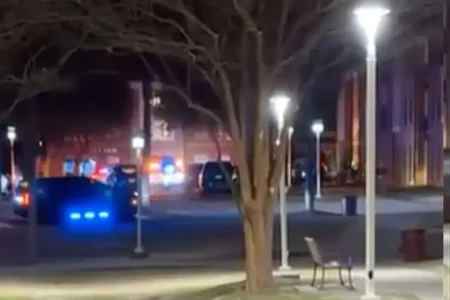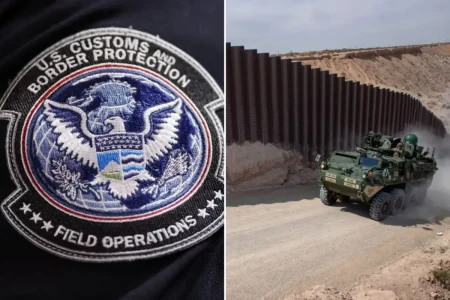International Tensions Rise as UN Security Council Convenes Over US Maritime Operations in Caribbean Waters
Security Council Deliberates on Controversial Anti-Narcotics Campaign
In an extraordinary session filled with diplomatic tension, the United Nations Security Council assembled Friday to address growing international concerns regarding the United States’ recent military operations in Caribbean waters. The high-level meeting, called at the request of several member states, focused on examining what the Trump administration has characterized as necessary intervention against narcotics trafficking networks, but what critics have labeled as potentially excessive use of force in international waters.
The Security Council chamber fell into a somber silence as representatives from fifteen nations listened to detailed accounts of the maritime operations that have resulted in multiple fatalities over the past month. According to official statements from Washington, these operations specifically targeted vessels allegedly engaged in drug smuggling activities along established trafficking routes connecting South America to the United States. “These precision interventions were conducted in accordance with international law and represent a critical component of our comprehensive strategy to disrupt the flow of illegal narcotics that devastate American communities,” stated the U.S. Ambassador in her opening remarks, presenting satellite imagery and intelligence reports purportedly documenting suspicious maritime activities in the region.
However, the U.S. position faced immediate challenges from several Council members who questioned both the legal foundation and proportionality of the operations. The representative from Mexico delivered a particularly pointed critique, noting that “while the international community stands united against drug trafficking, unilateral military action in international waters without proper coordination raises profound questions about sovereignty and the rule of law.” This sentiment was echoed by representatives from Caribbean nations directly affected by the operations, who expressed dismay at what they described as a lack of consultation before the deployment of American naval assets in waters near their territorial boundaries. The Venezuelan ambassador went further, characterizing the actions as “a dangerous precedent that undermines the multilateral frameworks established precisely to address transnational criminal activities through cooperation rather than confrontation.”
Analysis of Maritime Law and International Security Implications
The legal complexities surrounding the incident dominated much of the Council’s technical discussions, with experts in maritime law being called upon to clarify the boundaries of national jurisdiction in international waters. Professor Eleanor Cartwright from the International Maritime Law Institute, addressing the Council as an independent expert, explained that “while nations maintain rights to interdict vessels suspected of illegal activities, such operations must adhere to established protocols under the United Nations Convention on the Law of the Sea and related agreements on narcotics interdiction.” This legal framework requires substantial evidence before interdiction and mandates proportional use of force – standards that several Council members suggested may have been overlooked in the recent operations.
The debate expanded beyond purely legal considerations when the Russian representative connected the Caribbean operations to broader patterns in American foreign policy. “We observe with concern how unilateral actions continue to undermine the international order that this very Council is tasked with maintaining,” he stated, drawing historical parallels to previous interventions in other regions. The Chinese delegation similarly emphasized the importance of multilateral approaches to transnational threats, proposing enhanced regional cooperation mechanisms as an alternative to what they termed “military solutions to complex social and economic challenges.” These interventions highlighted how the specific incidents in the Caribbean have become emblematic of wider tensions regarding security governance in a multipolar world.
In a striking moment during the proceedings, the Council viewed documentary evidence including vessel tracking data and communication logs provided by non-governmental organizations monitoring maritime activity in the region. These materials, while not conclusive, raised questions about whether some vessels targeted in the operations were indeed engaged in narcotics trafficking or might have been fishing boats or commercial transporters misidentified in the intelligence process. Human rights organizations, granted brief speaking opportunities, presented testimonies from survivors who contested the official characterization of the vessels’ activities. These conflicting narratives underscored the evidentiary challenges inherent in evaluating security operations conducted at sea, far from independent observers.
Diplomatic Responses and Political Dimensions
The diplomatic fallout from the operations extended well beyond the Security Council chamber. In capitals throughout Latin America and the Caribbean, public demonstrations have emerged in response to what regional media has termed “aggressive interventionism.” Several governments have recalled their ambassadors from Washington for consultations – a symbolic but significant diplomatic measure reflecting deteriorating relations. Caribbean Community (CARICOM) leaders issued a joint statement prior to the Council meeting, calling for “transparent investigation into all incidents resulting in loss of life” and demanding “respect for regional sovereignty and established cooperative security frameworks.”
Within the United States, domestic political dimensions have added complexity to the international response. Congressional leaders from both major parties have offered varying interpretations of the operations, with some praising what they characterize as decisive action against drug trafficking networks while others have called for oversight hearings to examine operational protocols and intelligence validation procedures. Policy analysts note that the timing of these operations, occurring months before a presidential election, has inevitably politicized what administration officials insist should be viewed strictly as security enforcement actions rather than political statements.
The Pentagon has maintained a carefully calibrated position, with a spokesperson emphasizing that “all operations were conducted according to established rules of engagement with appropriate command authorization.” Military experts consulted by international media have pointed out that the operations represent an intensification of long-standing interdiction efforts rather than an entirely new approach, though the increased frequency and tactical aggressiveness appear to signal a policy shift. Naval intelligence officers, speaking on condition of anonymity to specialized defense publications, have indicated that the operations were based on “actionable intelligence regarding high-value targets” connected to cartel networks responsible for significant narcotics flow into the United States.
Regional Security Cooperation and Alternative Approaches
Throughout the Council deliberations, several constructive proposals emerged regarding enhanced regional security cooperation as an alternative to unilateral military action. The Colombian representative, representing a nation with extensive experience combating narcotics networks, outlined a comprehensive framework combining intelligence sharing, coordinated interdiction, judicial cooperation, and development initiatives addressing root causes of narcotics production. “Our experience demonstrates conclusively that successful counter-narcotics strategy requires multi-dimensional approaches that balance security measures with economic opportunity and institutional strengthening,” she stated, earning appreciative nods from several Council members.
The European Union’s observer to the Council presented data from alternative interdiction models employed in cooperative efforts between European nations, emphasizing how intelligence verification protocols and graduated response frameworks have proven effective while minimizing casualties. “The complex challenge of transnational criminal networks demands sophisticated responses that preserve human rights while effectively disrupting illegal activities,” the EU representative noted, offering technical assistance to develop regional capacity for such approaches in the Caribbean Basin. These interventions shifted the conversation toward constructive alternatives rather than merely criticizing the American approach.
Perhaps most significantly, several Caribbean nations presented a united proposal for a regionally-led security coordination mechanism that would incorporate American resources and intelligence capabilities within a multilateral framework respecting sovereignty concerns. “We seek neither to exclude critical partners like the United States nor to permit our waters to become havens for criminal enterprises,” stated the Jamaican representative, articulating a balanced position that appeared to resonate with many Council members. This proposal, developed through intensive regional consultations over recent weeks, represents a potential diplomatic breakthrough offering Washington a face-saving alternative to its current unilateral approach.
Future Implications and Council Deliberations
As the marathon session approached its conclusion, attention turned to what concrete actions the Security Council might take in response to the situation. While permanent members’ divergent positions made binding resolutions unlikely, several procedural options remained available. The Council President indicated that a presidential statement – representing the consensus position of the body without formal voting requirements – was being drafted to express concern regarding casualties while affirming shared commitment to counter-narcotics objectives. Additionally, the Secretary-General was requested to appoint a special envoy to facilitate dialogue between the United States and regional stakeholders regarding operational coordination and proportional use of force standards.
Looking beyond immediate diplomatic maneuvers, security analysts have identified the Caribbean situation as a significant test case for evolving norms regarding maritime security operations and proportional force in international waters. The increasing sophistication of transnational criminal networks, combined with advanced military capabilities deployed against them, creates complex scenarios not fully anticipated by existing legal frameworks. “What we’re witnessing is the challenging intersection of counter-narcotics policy, maritime law, human rights standards, and sovereignty principles,” noted Dr. Jasmine Hernandez of the Center for Transnational Security Studies in a briefing paper circulated among Council members.
As delegations departed the Council chamber, the diplomatic path forward remained uncertain. The American representative indicated willingness to “consider constructive proposals for enhanced coordination” while maintaining that “critical security operations cannot be indefinitely suspended while bureaucratic mechanisms are developed.” Caribbean representatives expressed cautious optimism that the international spotlight might facilitate meaningful dialogue while emphasizing that regional patience was not inexhaustible. With the Council scheduled to revisit the issue within thirty days, the coming weeks will prove critical in determining whether confrontation or cooperation will characterize this contentious dimension of international security governance in the Western Hemisphere.







